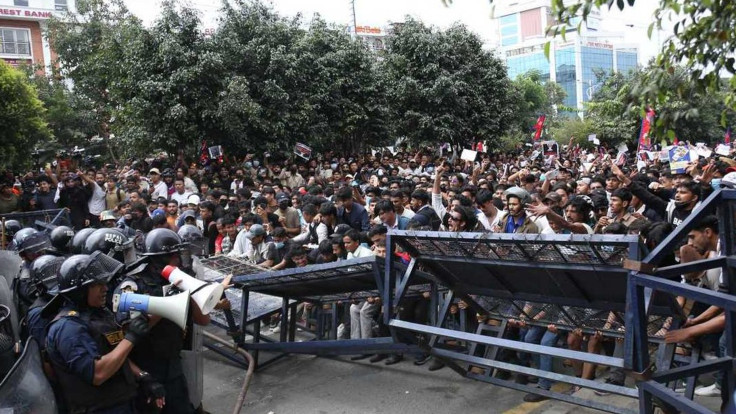Philippines Corruption Scandal: Will the Country Be the Next Nepal and Indonesia to Hold Revolution?
Explosive graft claims and mass protests raise questions about political stability

The Philippines is entering a volatile political moment as a sweeping corruption scandal fuels public outrage and triggers nationwide protests. President Ferdinand Marcos Jr faces mounting criticism after allegations of systemic graft in state-funded flood control projects, raising concerns about whether the country could experience the kind of mass uprisings recently seen in Indonesia and Nepal.
Massive Corruption Allegations Spark Protests
Filipinos have watched televised congressional hearings over irregularities in government flood control contracts with growing frustration. According to Asia Times, investigators found that £7 billion ($9.2 billion) of flood control spending since 2022 included thousands of substandard or non-existent projects. Fifteen contractors managed to corner a fifth of the total budget despite weak documentation and repeated red flags.
The controversy has been amplified by the monsoon season, which submerged parts of Metro Manila despite earlier claims from Marcos that new flood systems were effective. As the revelations grew, student groups and activist networks mobilised large demonstrations and announced a wider national protest on 21 September. The timing coincides with the anniversary of the 1972 martial law declaration under Marcos' father, a date that holds deep historical weight for many Filipinos.
Marcos said police would not block the protests and acknowledged that public anger was justified. He announced the creation of a new independent commission to investigate corruption, led by former Court of Appeals Justice Andres Reyes and supported by former public works secretary Rogelio Singson.
Claims Link Top Officials to Alleged Kickbacks
The scandal escalated further after former lawmaker Zaldy Co publicly accused top leaders of direct involvement in the alleged kickback scheme. In a detailed video statement reported by the Inquirer, Co claimed that he acted as a conduit for £722 million ($953 million) in kickbacks tied to infrastructure projects.
He alleged that the money went to Marcos and former House Speaker Martin Romualdez. Co also accused Romualdez of threatening to kill him if he spoke publicly about the scheme or returned to the Philippines. He said the threats came during private meetings and phone calls earlier this year. The Inquirer reported that Romualdez's office has been asked for comment.
The claims have intensified divisions among political elites and inflamed public frustration. They also prompted the resignation of the public works secretary, along with the suspension of all new bidding for flood control projects.
Public Urged to Trust Democratic Processes
The Department of National Defense and the Armed Forces of the Philippines issued statements warning of groups attempting to exploit the situation. They did not name specific actors but urged the public to trust democratic processes and remain focused on constitutional governance. Senior officials stressed that the military remains non-partisan and does not support extralegal interventions.
The warnings gained attention due to the country's history of uprisings. The Philippines saw two major movements in the past: the 1986 revolt that toppled former President Ferdinand Marcos Sr and the 2001 protests that removed former President Joseph Estrada.
Reaction Across Society Reflects Deep Anxiety
Business groups, civil society coalitions and local officials have called for transparency and swift action. Many described the situation as evidence of entrenched corruption that requires immediate institutional repair. The intensity of these reactions reflects the depth of public frustration, which has grown steadily as new allegations emerge.
The conditions driving unrest in Indonesia and Nepal, large-scale corruption, public distrust, economic strain and confrontations between citizens and political elites, share similarities with the current Philippine landscape. The scale of the flood control scandal, the alleged £722 million kickback scheme and the threats reported by Zaldy Co have contributed to the sharp rise in public anger.
However, experts note essential differences. The Philippines maintains an active civil society, a vocal press and a military leadership that repeatedly affirms constitutional loyalty. These factors reduce the likelihood of a violent national uprising. The larger risk lies in sustained mass protests, political realignments and institutional clashes that could destabilise governance without moving into outright revolution.
The situation remains fluid. If the corruption probe produces credible arrests and meaningful reforms, tensions could ease. If public confidence continues to erode, the country may enter a prolonged period of unrest that mirrors the early stages of upheaval seen abroad.
© Copyright IBTimes 2025. All rights reserved.





















